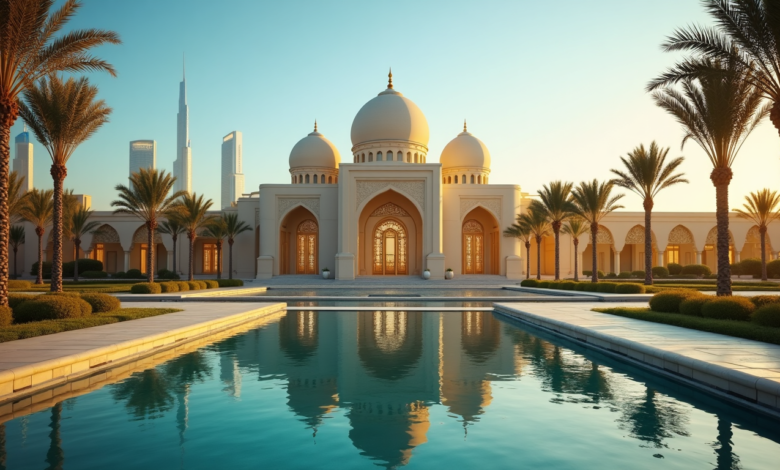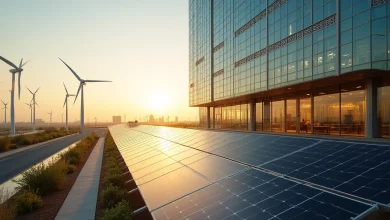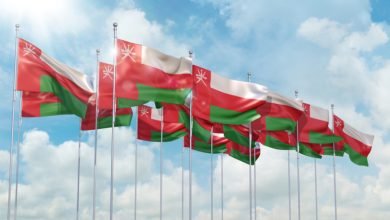
Union General Budget for 2025 Approved by FNC in UAE
The Federal National Council (FNC) reached an important milestone in UAE’s economic governance by approving the Union General Budget for fiscal year 2025. This vital financial framework shows the nation’s dedication to eco-friendly development and economic growth in all sectors. UAE’s forward-thinking approach to fiscal planning and steadfast dedication to economic stability shine through this budget approval.
UAE’s long-term vision aligns perfectly with the FNC’s endorsement of the Union General Budget for fiscal year 2025. The complete financial strategy includes social development, infrastructure, healthcare, and education to ensure balanced growth nationwide. The country’s economic priorities and development goals for the coming fiscal year find a clear direction through this approved budget.
Historic Budget Overview
UAE’s fiscal planning has grown by a lot in the last five decades. The budget expanded from a modest AED 200 million in 1972 to a historic AED 71.5 billion for 2025. This 291-fold increase shows the nation’s economic transformation and financial strength.
The 2025 budget lines up with the multi-year financial plan (2022-2026). It maintains a balanced approach where revenues match expenditures at AED 71.5 billion. The Ministry of Finance shows its dedication to transparency and efficient resource allocation through:
- Quarterly financial performance reports
- Detailed annual expense and revenue summaries
The budgeting process has grown by a lot and shifted from a three-year to a five-year cycle. This change allows better long-term planning. The Ministry of Finance remains dedicated to providing open data with complete transparency in financial operations. The budget development focuses on implementing strategic plans and initiatives to enhance infrastructure, improve educational and health services, and strengthen sectors that serve UAE citizens and residents.
Sector-wise Allocation Analysis
The social development sector leads the Union General Budget for fiscal year 2025 with AED 27.859 billion. This represents 39% of the total federal budget and shows UAE’s steadfast dedication to better social services and community growth.
Here’s how the budget is distributed:
- Education programs: AED 9.99 billion
- Healthcare and prevention services: AED 5.505 billion
- Social care initiatives: AED 8.956 billion
- Defense affairs: AED 8.126 billion
- Public services: AED 23.431 billion
The government affairs sector receives AED 25.570 billion, which makes up 35.7% of total allocations. UAE has set aside AED 2.523 billion for economic affairs. The infrastructure and economic affairs sector gets AED 2.581 billion – 3.6% of the total budget.
UAE has allocated AED 2.864 billion to the financial investments sector, which is 4% of the total budget. This shows the country’s focus on building a diverse investment portfolio. The budget also includes AED 1.288 billion for culture and arts development and AED 660 million for housing initiatives. These allocations reflect UAE’s comprehensive plan for national growth.
Strategic Development Impact
IMF projections show the UAE’s economic growth will lead Gulf Cooperation Council countries in 2025. The non-oil sector should reach growth rates of 4-5 percent. This reliable outlook comes from strategic investments and structural reforms in the 2025 budget framework.
The UAE shows its dedication to economic diversification through major initiatives:
- Abu Dhabi’s USD 10 billion investment in tourism infrastructure
- ADNOC Gas’s USD 13 billion expansion plan
- Dubai’s public-private partnership portfolio valued at USD 10.9 billion
These strategic collaborations have helped UAE secure the 7th position in the 2024 World Competitiveness Report. The country now ranks ahead of Norway, Japan, and Canada. UAE reached its best-ever 10th place in the 2023 Soft Power Index and leads the Middle East region for four years straight.
The budget focuses on infrastructure and social development that will create thousands of new employment opportunities. Jobs will grow especially in technology, healthcare, and logistics sectors. Dubai’s tourism sector shows strong results with 1.77 million international visitors in January 2024 and 1.9 million in February. Hotel guest spending should reach USD 758.61 billion in 2024.
This integrated development plan includes major upgrades to educational infrastructure, healthcare facilities, and social welfare programs. UAE stands as a global hub for sustainable development and business breakthroughs. The country’s resource allocation strengthens its goal to reduce oil dependency while building a knowledge-based economy.
The UAE’s 2025 Union General Budget represents the most important milestone in the nation’s economic trip. The budget reflects ambitious growth targets and prudent fiscal management. This AED 71.5 billion framework shows the UAE’s steadfast dedication to balanced development in social, educational, and healthcare sectors. The nation retains strong economic fundamentals. Strategic allocations of AED 27.859 billion for social development highlight the leadership’s commitment to citizen welfare and community advancement.
The budget’s complete approach arranges with UAE’s remarkable achievements in global competitiveness rankings and economic diversification efforts. The nation strengthens its position as a leading global economic hub through targeted investments in infrastructure, technology, and human capital. These financial commitments and projected non-oil sector growth rates of 4-5 percent build a solid foundation. The UAE continues its sustained progress toward long-term development goals.






